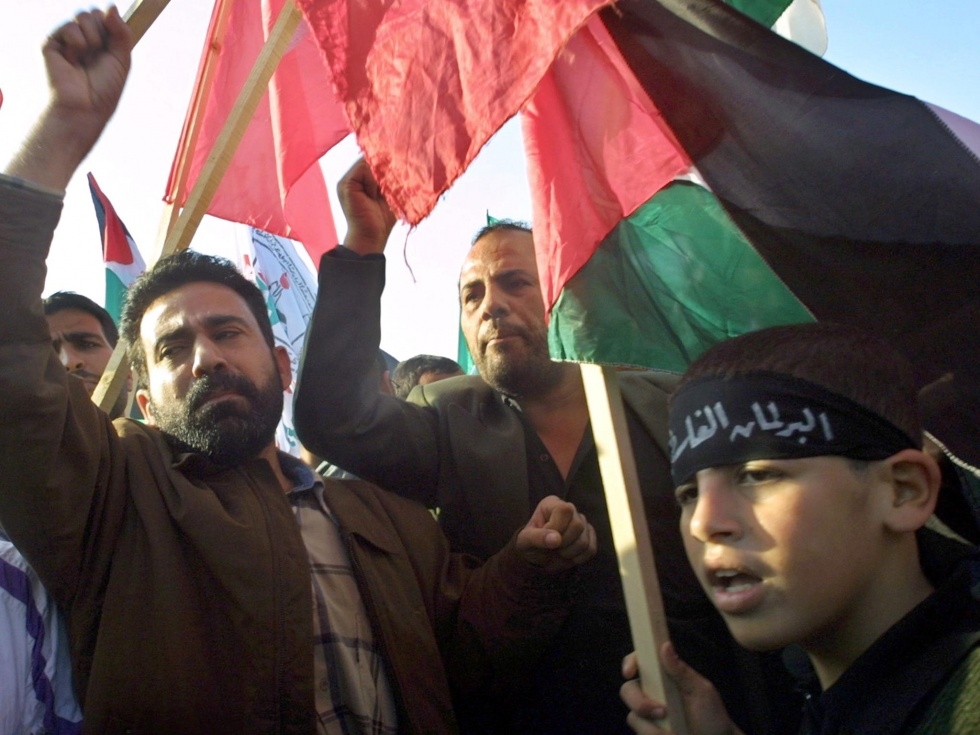Palestinians join Geneva Convention as talks falter

GENEVA – The Palestinian authority surged ahead with its attempts to join a score of international conventions Friday, as it successfully managed to sign up to the Geneva Convention, which governs the rules of warfare and humanitarian operations in conflict.
Swiss Foreign Ministry spokesman Pierre-Alain Eltschinger told AFP that the Palestinian Authority had declared itself party to the conventions on 2 April, adding that the registration had been formally accepted.
The announcement came just a few hours after the UN announced Palestine’s successful bid to join 13 treaties, including the convention on the rights of the child, the convention against torture and an anti-corruption accord.
The UN secretary general Ban Ki Moon, has now informed all 193 UN member states that the Palestinian applications were “in due and proper form”. Palestine is now expected to become an official party to the conventions on 2 May.
The Geneva Convention, however, is of specific significance as it is widely used by leading human rights groups to lobby against Israeli violations in the West Bank and Gaza, such as settlements and human rights abuses.
New MEE newsletter: Jerusalem Dispatch
Sign up to get the latest insights and analysis on Israel-Palestine, alongside Turkey Unpacked and other MEE newsletters
Upon receiving the letter from the Swiss leader confirming the Palestine’s registration, Palestinian President Mahmoud Abbas praised it as “a historic day for the Palestinian people,” according to a senior Palestinian official.
Abbas took the decision to apply to the 15 conventions in response the flailing peace talks, which came to a head in March after Israel held back on its promises to release Palestinian prisoners and made further announcements on settlement expansion.
Abbas had originally promised to freeze all moves to join UN organisations and international conventions as part of the talks.
His move has sparked a fierce outcry from Tel Aviv which reacted by stopping all communications between Israeli ministries and their Palestinian counterparts and freezing $100m worth of Palestinian taxes that Israel collects on the PA’s behalf. Such moves are expected to hit the cash-strapped PA hard and there are fears that some public sector wages may have to be stopped.
Divisions inside Israel
The ongoing impasse with the Palestinians is also having grave reverberations back in Israel where there are mounting fears that the current government may collapse over the talks.
US pressure succeeded in restarting talks on Thursday, despite Tel Aviv’s earlier pronouncements to halt cooperation. Some Israeli media has since been hinting that a deal may yet be salvaged, although a US State Department spokesperson was quick to call such speculation “premature.”
However, even a low grade deal that conforms roughly to the peace outlines previously agreed, may prove fatal to the current Israeli right-wing ruling coalition.
Economy Minister Naftali Bennett, who heads the far-right Jewish Home Party, has threatened to pull his party out of the coalition if a deal is reached.
“If the government proposes this deal to us, the Jewish Home Party will pull out of the coalition,” he said in a statement late Thursday.
Netanyahu leads a 78 MK-strong coalition but if the Jewish Home Party chooses to withdraw its 12 MKs, Netanyahu will be forced to seek a new governing partner or call new elections. A majority of 61 is needed to lead the 120-seat Knesset.
Analysts have so far been dismissive of Bennett’s threats. Journalist and political commentator Yossi Elituv said the only thing that would cause Bennett to leave the coalition would be if he were “kicked out.”
His attitude is “to be in the government, threaten to leave and never quit,” he told AFP.
Middle East Eye delivers independent and unrivalled coverage and analysis of the Middle East, North Africa and beyond. To learn more about republishing this content and the associated fees, please fill out this form. More about MEE can be found here.

